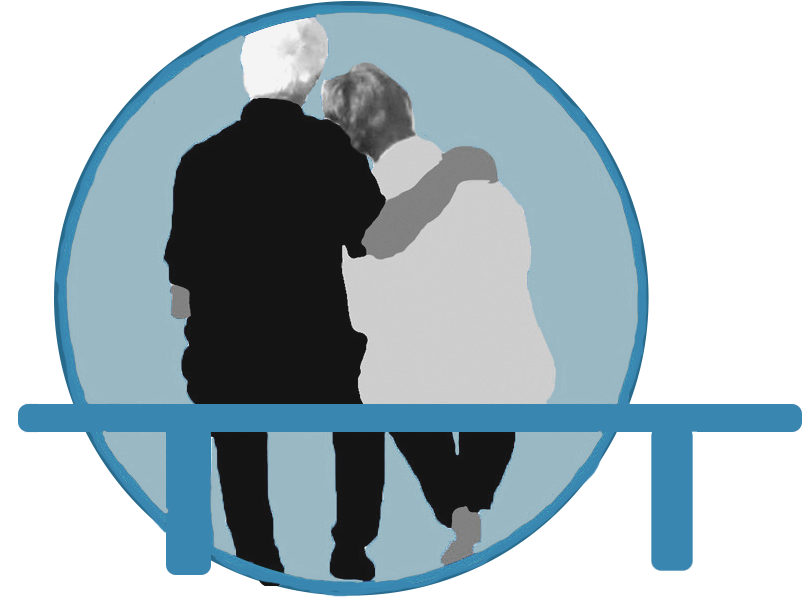Your emotional life is like a compass that can orient you toward meaning and toward deep connection to yourself and to your partner. Emotional reactivity is like an electromagnetic field that throws off the compass of your emotional and relational life. It prevents you from being able to set your compass for a new destination. It makes it harder to get past your preconceptions. You can’t get a true reading. When we rely on our emotional reactions we lose our bearings. (Watch the film clip of Ben and Katie in full reactivity to help you and your partner reflect on reactivity in your relationship.)
Often, one of the first things that couple therapy aims to accomplish is the de-escalation of emotional reactivity. Both your own and your partner’s emotional reactivity are amplified by the negative process and patterns of interaction in your relationship. Couple therapy helps you recognize and neutralize both the patterns and the emotionally reactive electromagnetic field. This help you get a truer reading of your relationship and of your emotional life. This makes it much easier for you and your partner to reach an emotionally meaningful destination.
Still, it is useful to understand what emotional reactivity is, inside yourself, individually. Though emotional reactivity is normal and unavoidable in our closest relationships, we can always learn from it. You can think of your reactivity as a signal that there is something to learn about yourself in relation to your partner. Yet when you are reactive it doesn’t feel as if it has anything to do with yourself. The understandable response is to focus all your energy on trying to get your partner to change rather than focusing your energy on yourself and what you are experiencing.
This is the main thing about emotional reactivity: it is an emotional reaction against thinking about and feeling things that might seem to be too painful or unfamiliar to experience. These are probably feelings that you do not feel permitted to have or to speak. These are often vulnerable feelings.
We tend to identify with the reactive experience. Identifying with the reactive experience means that you experience the reactive feelings as the main feelings going on inside you. The first and hardest thing to do is to ask yourself, “What feeling or experience on the inside of me am I reacting against feeling?” This is hard to do because your reaction is, by definition, an effort to move away from the deeper feelings about yourself and your partner. So you naturally keep focusing on what your partner is doing that has evoked the experience.
Couple therapy helps you learn to monitor and interrupt this automatic process. It helps you work with your partner to recognize the negative pattern that maintains the expression of reactive feelings. It helps you redirect your energy from changing your partner to learning what is happening inside. It helps you to become self-reflective in the midst of difficult feelings. It is meant to help you look inward on the way to expressing your deeper feelings to your partner. It helps you and your partner depend on each other to express your more fundamental and vulnerable feelings so you don’t have to become reactive with each other.
When you resolve to ask that question (“What feeling or experience on the inside of me am I reacting against?”) you begin making a relationship with the feelings inside that you have been fighting against. Couple therapy is meant to be a safe place for both of you to experience and explore feelings that have previously been unwelcome.
A stance of interest and exploration changes things. This stance makes way for new behavior to form which allows your relationship to evolve. There can be an accumulating sense of the relationship’s value. You create the ability to make a home inside for these experiences that you have tended to reject. This helps you to become more in charge of what and how you communicate. As you and your partner increasingly welcome and accept each other’s deeper feelings, and the deeper needs that they express, you stop blaming your experience on your partner.
A truly beautiful result, now that you welcome, rather than reject, these parts of yourself, is that you can ask your partner for love, care and help regarding these feelings. Husbands and wives are much more likely to be willing to help when we take this kind of responsibility for what is happening inside. These are times when the world of our relationships become much more promising and abundant.
Couple therapy helps establish a way of being together that creates enough safety in the relationship so that you can be with one another more easily when it comes to the deeper aspects of yourselves. Emotional reactivity becomes something you help each other with, rather than something that polarizes you.
Thank you for reading my article,
Robert Ogner, May 14, 2008


